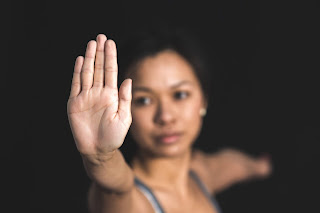The differences between men and women, how often they give and receive touch
The differences between men and women, how often they give and receive touch
Do men and women speak the same language when it comes to platonic touch or are there significant differences as to how the genders both give and receive touch?
It would seem from studies conducted that women tend to both give and receive touch more then men so why is this so?
Unfortunately for men in studies it has been shown that they are at a disadvantage from the time they are born often with a less stable heart rate ,respiration and brain wave activity then female babies and as a result are more likely to end up in intensive care, which sadly is all connected to the lack of touch before they are even born!
From childhood, society teaches young boys to be self-sufficient and independent and not to show emotion because that could be seen as a weakness. They are encouraged to get involved in sports, to look after their younger sisters (as they are considered to be more vulnerable) and too focus on building a strong outer dominant side as opposed to being able to nurture and connect with their more sensitive and emotional sides. Expectations are often high for them to excel at school and get the necessary grades needed to seek successful positions in their chosen careers that will enable them as men to be able to take care of both themselves and their families.
Therefore, the pressure on men to reach the expectations of parents, teachers and society can be over whelming, causing anger and frustration in the long term which is completely understandable. As a result of their inner drive, the pressures to succeed and become successful it is very common for men to find it difficult relating to their emotions and even more so sharing them with others.
Even in today’s modern society there are double standards relating to the amount of affection and physical expression men and women are expected to display. Women are openly encouraged from birth to become the caregivers and nurturers and therefore for women the opportunities to engage in emotional contact from and too both genders are greatly increased. Women are actively taught and encouraged to use touch as a form of connecting and building platonic and romantic relationships with both genders, especially their own and yet for men any form of sustained physical contact with another male unless it is with his own child can be deemed inappropriate or homophobic in nature.
One of the factors may be that many men are never taught how to touch other men in a gentle, affectionate and non-sexual way or that it is indeed acceptable for them to be able to receive touch as a platonic connection as women do to each other on a constant basis, such as holding hands, hugging or having intimate gatherings. As a result of this unbalanced attitude towards the genders men can often be deprived of physical touch and connection unless it is from their own child or spouse, leaving them deficient emotionally and physically and often feeling lonely and isolated as a result.
Is it any wonder then that men can often struggle to connect with their inner emotions and connection towards others when society puts so much pressure on what is deemed ‘appropriate’ behaviour. This lack of touch being received and fear of using touch in a way that may be deemed ‘inappropriate’ can conclude in frustration and anger for many men, particularly if they are single and in some cases result in men becoming sexist or aggressive towards women as they struggle to deal with the limitations that they face when trying to face their own vulnerabilities, which are ultimately caused by societies expectations of what is considered appropriate behaviour.
If men are raised to be independent of touch from others and platonic intimacy as their female counterparts freely engage in, unsurprisingly, it can have detrimental effects on their sense of self, happiness and wellbeing. Both genders need connection and touch equally from their friendships and relationships and yet men rarely have the opportunity to receive the same contact in equal measure to women. Touch deprivation can have serious affects on health and wellbeing, social contact is essential to avoid feelings of loneliness and depression which tragically can in some cases lead to feelings of despair and suicidal feelings and the numbers are increasing rapidly on a daily basis.
Studies have shown that men who are divorced are most vulnerable and at risk ,much more so then unmarried men and interestingly men and women deal with bereavement very differently, if men lose their wives it is not uncommon for them to remarry which often happens within a year of their spouse passing away ,but for women they often choose to stay alone and instead deal with their grief not by building a new relationship, but by expanding their social network with friends.
Touch is essential not only to help us engage in healthy and fulfilling relationships but for our own personal happiness because no matter what our gender is, one important factor binds us together ..everyone irrespective of age ,race, sex or creed needs touch to survive, in addition to enabling it to amplify our social and emotional intimacy with ourselves and others.
Elizabeth Lock Professional Holistic and Cuddle Therapist CTHA
heal@yourinnerglow.co.uk https:// yourinnerglow.co.uk
heal@yourcuddletherapy.co.uk https:// yourcuddletherapy.co.uk




Comments
Post a Comment